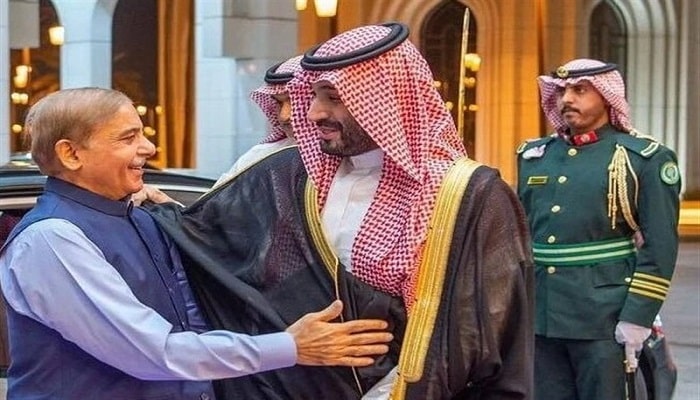PNN – The Saudi-Pakistani defense pact signed yesterday is a multifaceted response to recent developments in the Middle East.
On September 17, 2025, Saudi Arabia and Pakistan signed a mutual defense pact that not only institutionalized the two countries’ long-standing military cooperation, but also signaled profound geopolitical developments in the Middle East.
The agreement, in the context of regional tensions following the Israeli attack on Qatar on September 9, 2025 and the lack of a decisive US response, is interpreted as a response to the growing distrust of the Gulf States in US security commitments. Furthermore, the pact sent a deterrent message to Israel that Saudi Arabia is ready to confront any potential threat.
Historical context and motivations of the treaty
Saudi Arabia and Pakistan have had decades-long ties based on military, economic, and religious cooperation. Pakistan, the only Islamic country with nuclear weapons, has benefited from Saudi financial support for its nuclear program.
The new treaty, signed by Saudi Crown Prince Mohammed bin Salman and Pakistani Prime Minister Shehbaz Sharif, defines a joint commitment to mutual defense against any aggression. Pakistan’s official statement described the agreement as “a step to strengthen mutual deterrence and regional peace,” but its timing, just a week after Israel’s attack on Qatar, suggests more immediate motives.
A senior Saudi official told Reuters that the deal was the result of years of negotiations and was not a response to a specific event. However, its proximity to the Israeli attack on Qatar and the lack of a US response have led analysts to conclude that the agreement is a strategic response to recent developments.
The pact, which includes “all military assets,” has raised questions about the possibility of Pakistan providing a nuclear umbrella to Saudi Arabia, although Saudi officials have called it merely a “comprehensive defense agreement.”
Read more:
Deterioration of trust in America
Israel’s attack on Qatar on September 9, 2025, was a turning point in the Gulf states’ understanding of regional security. By targeting Hamas political leaders in Doha, who were negotiating a ceasefire in Gaza, Israel not only violated Qatar’s sovereignty but also undermined confidence in its mediation.
The attack, which killed six people, including a Qatari security officer, was widely condemned by Arab countries. Qatar called it “state terrorism” and called for an emergency meeting of the Security Council, but the US, a key ally of Qatar and host of the Al-Udeid base, responded only with an expression of “discontent”.
US President Donald Trump, without explicitly condemning Israel, described the attack as “inappropriate” and emphasized the goal of eliminating Hamas.
This weak stance by the United States, which has sold billions of dollars in arms to Qatar and uses the Al-Udeid airbase, came as a major shock to the Gulf states. Qatar, which had expected Washington’s firm support, was confronted with the fact that US security guarantees against Israel were ineffective.
Consequences of Israel’s attack on Qatar
The Israeli attack on Qatar had far-reaching consequences that went beyond the bilateral relationship between Qatar and the United States. First, the attack severely disrupted the Gaza ceasefire negotiations, which Qatar had brokered. Although Qatar announced that it would continue its mediation role, confidence in the process waned. Second, the event strengthened Arab alliances.
The emergency summit of the Arab League and the Organization of Islamic Cooperation on September 15 showed strong support for Qatar and threatened Israel with further attacks. Third, the attack solidified Israel’s position as the main security threat in the minds of the Gulf States. This shift in priority forced the Gulf States to reconsider their security strategies.
A message of deterrence to Israel
One of the key goals of the Saudi-Pakistani pact was to send a message of deterrence to Israel. The attack on Qatar showed that Israel, with an increasingly aggressive spirit, was willing to target even close American allies.
This caused deep concern in Riyadh, especially since Saudi Arabia had strengthened informal diplomatic relations with Israel in recent years. The signing of the pact with Pakistan, which has nuclear capabilities, was a clear message to Tel Aviv: any aggression on Saudi soil would be met with a decisive response, perhaps even nuclear.
In short, the Saudi-Pakistan defense pact is a multifaceted response to recent developments in the Middle East. Distrust of US security commitments following Israel’s attack on Qatar has led Gulf states to seek alternative alliances.

